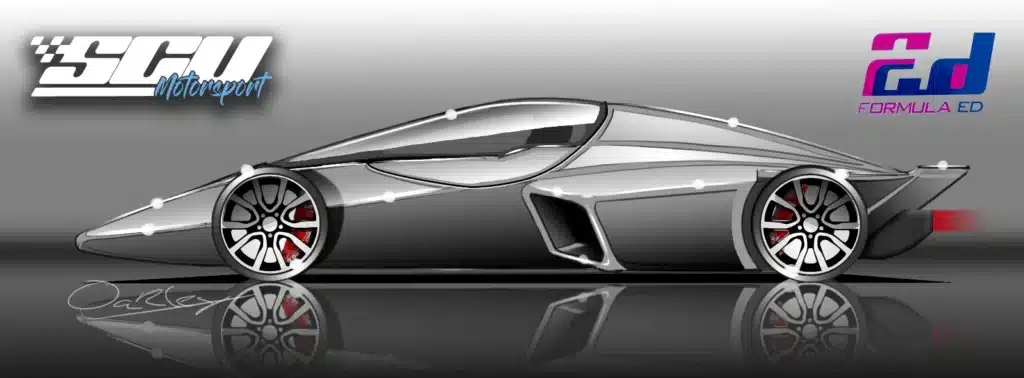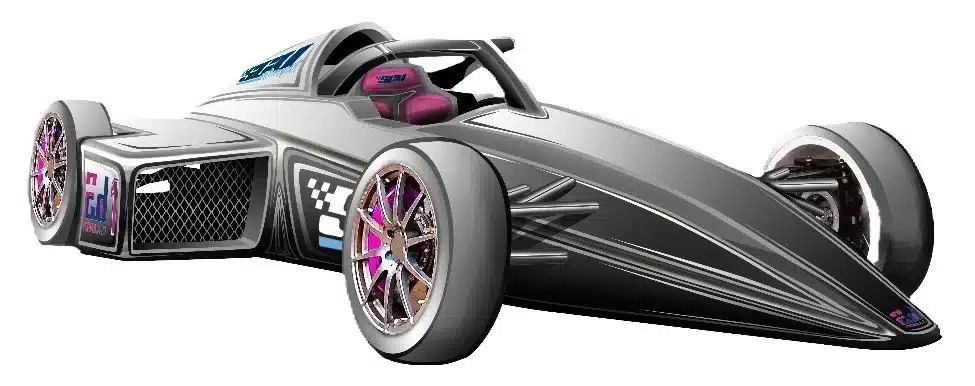
(In Part 1 of my interview with SCU Motorsport founder Alan O’Neill (which you can read here), he explained to me the problem with motorsport education in the UK. In Part 2, Alan explains in his own words what he intends to do to address the problem.)
The UK is recognized as the de facto lead in motorsport engineering, with 7 of the 10 current F1 teams based in the UK and the new F1 team Cadillac also establishing itself in the UK. According to the Motorsport Industry Association (MIA), motorsport engineering contributes over £8 Billion to GDP in the UK, yet the education system that feeds it is not good. There are many good colleges in the UK, delivering programmes that run beyond just a mainstream qualification and have students working on real race cars and getting invaluable experience. Conversely, there are colleges just delivering a qualification that isn’t fit for purpose, and not providing the correct experience needed for working in the motorsport sector – students need to be protected from this.
How would you feel if you were a motorsport expert and your child came home and said that they had signed up to do a motorsport course at college and then you found out that the sector rated the qualification at 1.5/10, and they were working on a road car doing normal automotive tasks rather than motorsport related tasks. We had one motorsport expert say the two mainstream qualifications are nothing more than motor-vehicle qualifications with motor vehicle tipp-exed out and overwritten with motorsport. It might not seem it, but the UK is lucky in that it has a motorsport education infrastructure; it is in need of improvement. Most countries don’t even have this.
The name SCU Motorsport came out of the need to develop pathways for students to follow from School, into Colleges and then on to University. Now is also a good time to clarify where SCU Motorsport were aiming to position themselves, and it is based on the UK education model. The schools have many initiatives that stimulate interest in STEM (Science, Technology, Engineering, and Mathematics) – F1 in Schools, Scalextric for Schools, SHELL Eco Marathon, Greenpower, Schools Karting and STEM on Track to name a few. Universities have Formula Student/SAE. The colleges, who are responsible for training the ’hands-on’, Vocational skills – the mechanics who do the pit stops, the wheel changes, and prepare and adjust the car so that the driver has the car at its optimal performance level have no formal initiatives to support them.

Our solution – design a race car specifically to support delivery of education and training, align the race car with a bespoke industry focused qualification, develop new learning and assessment methodologies that make learning more fun and engaging for traditional learners and more accessible for Neurodiverse learners. Establish a race series for colleges that will allow colleges to compete against each other on an equal basis.
And then the fun started, we were approached by several universities who stated that they were having students sign up for degrees and wanting to participate in Formula Student, but they had never picked up a spanner, so they would design components that couldn’t be adjusted or fitted and so they asked if we would allow them compete – and we agreed. We then had universities state that if we introduced design and development they would compete alongside Formula Student as we would race; unlike Formula Student/SAE.
The program has been structured so that on completion, students will have the ability to build a race car, run a race team, design race cars or components, undertake research and development, in fact all of the skills to stimulate the development of an indigenous motorsport infrastructure in any country that adopts the programme, and that is not lost on SCU Motorsport. They have ambitious plans to offer the course to any country that wants to adopt the program.
The program will start in the UK, and Motorsport UK have said “The programme has the potential to deliver the relevant skills and experience needed for future mechanics and engineers who want to pursue a career in motorsport”. SCU Motorsport plan to run a proof-of-concept demonstration with 20 cars and have already received requests from establishments in Italy, France and India to compete in the first year.
SCU Motorsport already have interest from India, Italy, Canada, Australia, USA and France. In 2020 in discussions with the FIA , the world governing body of motorsport, stated that the program has huge potential to promote inclusion, support the drive for zero emissions motorsport and ensure the longevity of motorsport.
SCU Motorsport have had feedback from many senior motorsport engineers and received accolades and endorsements – see the SCU Motorsport website.


